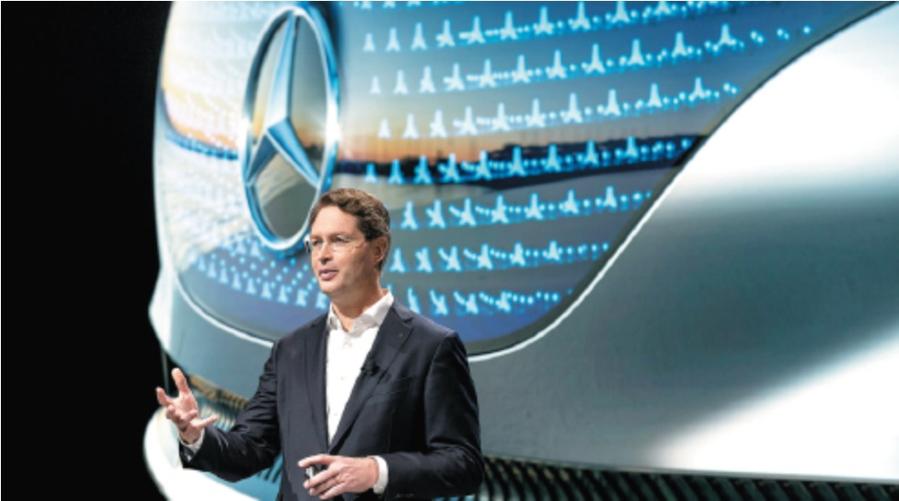 Ola Kaellenius, chairman of the board of management of Daimler AG and Mercedes-Benz AG, reveals to investors the company's new strategy on Oct 6, 2020. (PHOTO / CHINA DAILY)
Ola Kaellenius, chairman of the board of management of Daimler AG and Mercedes-Benz AG, reveals to investors the company's new strategy on Oct 6, 2020. (PHOTO / CHINA DAILY)
FRANKFURT - Daimler’s Chief Executive said China will remain Mercedes-Benz’s biggest growth market in the next decade and the German carmaker will adjust production locations to capture shifts in demand.
The remarks by Ola Kaellenius come after almost a decade of growth that has helped Mercedes to emerge as the world’s biggest-selling luxury car brand.
Thanks in large part to a strong rebound in demand from China, Daimler and German rival BMW both pre-released forecast-beating third-quarter results
“We need to look at our production footprint and where it makes sense, shift our production,” Kaellenius told the Frankfurt-based ICFW Journalists association late on Monday.
“Last year we sold around 700,000 passenger cars in China. The next biggest market is the US with between 320,000 and 330,000 cars.”
ALSO READ: Mercedes-Benz CEO: China pillar of development strategy
Thanks in large part to a strong rebound in demand from China, Daimler and German rival BMW both pre-released forecast-beating third-quarter results.
“In the next 10 years we also expect the biggest growth in China,” Kallenius added, explaining that the luxury carmaker will follow the market.
But with international trade tensions on the rise, the outlook for global sales remains uncertain.
Britain’s Brexit negotiations could end without tariff-free trade with the European Union and serves as an example of how things can go wrong, the Swedish executive explained.
ALSO READ: Mercedes-Benz committed to premium customer care
“I am hoping for last-minute common sense,” Kallenius said in response to a question about his expectations on the outcome of Brexit talks.
If Britain and the European Union fail to clinch a deal, World Trade Organization (WTO) rules would apply, resulting in tariffs.
“In the event of a so-called hard Brexit, we would not open factories, because this would not be worth it, given our sales numbers,” Kaellenius said, referring to sales in Britain. “We would have to learn to live with WTO rules.”
Increasingly fragmented global markets make it harder to build cars at a profit because it reduces economies of scale in production, he said.
READ MORE: Mercedes-Benz shows first pure electric SUV
However, tensions between United States and the rest of the world are likely to remain, regardless of whether the Republicans or Democrats win the US election next month.
“What the two (presidential) candidates are saying is that they have an interest in improving the trade balance, and we need to be ready for that,” Kaellenius said.


